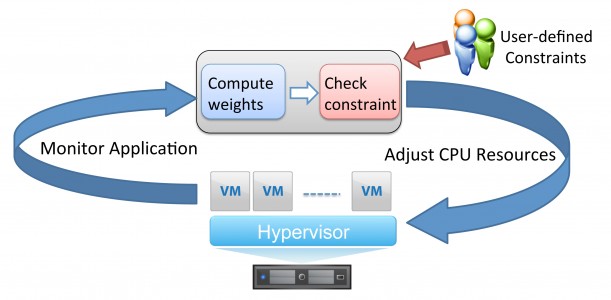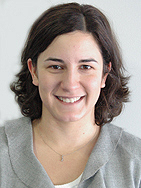Meeting Tomorrow’s Sustainability Demands Today

When it comes to high-powered computers, increased energy consumption and lack of reliability continue to be problems researchers are trying to overcome. Unfortunately, some of the best current methods for achieving these goals have their flaws. One example is seen in server consolidation, during which resources are shared across multiple applications and virtual CPUs. Without careful optimization, consolidation may result in sub-optimal energy efficiency or in high temperatures that increase cooling costs.
Over the last year, Assistant Professor Ayse Coskun (ECE) researched how server consolidation could be improved, in part thanks to an award from VMware, a leading provider in virtualization software. Coskun and her team’s initial work focused on designing server consolidation techniques that run on virtualized servers, targeting high-performance computing applications. They now have a working system that is able to improve energy efficiency on a real-life server.
“Working with VMware has proven to be a rewarding partnership because they’re always offering valuable feedback,” said Coskun. “They work with customers so they’re aware of problems we might not be able to observe in the lab setting.” Since 2011, she and her team have published several research papers on their progress in improving energy efficiency through server consolidation. “We have met the early milestones that we set with VMware,” said Coskun. “Now, we’re looking at more broad, realistic data center scenarios and exploring the reliability aspects in addition to improving the energy efficiency.”

Pleased with their initial results, VMware recently renewed Coskun’s funding, providing $75,000 for another year of research.
“Based upon promising early results, we are excited to extend our collaboration with Professor Coskun to investigate techniques for energy-efficient use of multi-core processors with virtualized workloads,” said Steve Muir, director of the VMware Academic Program (VMAP). Part of Coskun and her team’s continued research will include testing their techniques on multiple server nodes that are connected over the network as a representative data center scenario. “Professor Coskun plans to build on this base by exploring clustered environments and extending experiments to include general enterprise workloads is particularly interesting; we look forward to our continued relationship over the next year,” said Muir.
The renewed funding will allow Coskun to hire additional PhD students or postdoctoral researchers later this summer. She will also continue supporting student researchers, Can Hankendi (PhD ’15) and Samuel Howes (ECE ’14). Hankendi played a major role in developing a technique for automated resource management while Howes, newer to the project, focuses on setting up the virtualized experimental infrastructure for data center benchmarks.
“Can has single-handedly done most of the implementations and has put together great work so far,” said Coskun, “and Sam is rapidly learning about virtualization, which is a hot research topic right now.” Truly a team effort, students not only help with the research; they attend company meetings and symposiums with VMware as well.
“VMware is very research focused so we have a lot of exposure to their own researchers and engineers,” said Coskun. “It’s been a beneficial collaboration on both sides, so we hope to keep this partnership going in the future.”
Related Story: May 19, 2011 -“VMware Funds Coskun’s Server Consolidation Research“